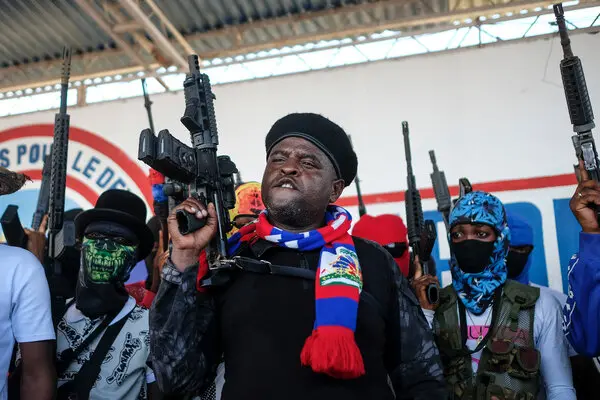Haiti is currently grappling with a severe security crisis, as gang violence continues to escalate, leading to significant loss of life and widespread displacement. In 2024, over 5,600 people were killed due to gang-related activities, marking a more than 20% increase compared to 2023. Additionally, more than 2,200 individuals were injured, and nearly 1,500 were kidnapped. The violence has also resulted in approximately 700,000 Haitians becoming homeless, many of whom are now living in unsanitary conditions.
In response to the escalating crisis, a U.N.-backed multinational mission led by Kenya has been deployed to assist the Haitian National Police (PNH) in restoring order. The mission currently includes around 400 Kenyan officers, with additional contributions from countries such as Guatemala and El Salvador. However, this is significantly below the expected 2,500 officers, and the mission requires extensive logistical and financial support to be effective.
Despite these international efforts, gangs continue to exert control over large portions of the capital, Port-au-Prince, and other regions. The situation has led to severe disruptions, including the suspension of flights by major airlines due to security concerns.
Airlines Suspensions and Updates
Major airlines, including American Airlines, Air France, and Spirit Airlines, have suspended or drastically reduced flights to Port-au-Prince, citing safety risks for both passengers and crew. American Airlines, which recently halted its daily flights between Miami and Port-au-Prince, has stated that it will continue to monitor the situation closely but has not announced a firm timeline for resuming regular service.
Reports suggest that airlines are coordinating with international authorities and assessing security measures at Toussaint Louverture International Airport. Some industry insiders speculate that limited services may resume in mid-2025, provided there are tangible improvements in Haiti’s security environment. However, full restoration of regular flight schedules is contingent on significant progress in stabilizing the country.
Travel advisories remain in place, with most governments urging their citizens to avoid non-essential travel to Haiti. The ongoing suspension of flights has further isolated the nation, compounding economic challenges and hampering humanitarian efforts.
Discussions of Negotiation with Gang Leaders
In light of the deteriorating security situation, there have been discussions about potential negotiations between government officials and gang leaders. Some politicians seem to consider engaging with gangs as a means to address the political crisis. Notably, Jimmy Chérizier, alias “Barbecue,” a prominent gang leader, has been involved in such discussions.
However, the prospect of negotiating with gangs is highly controversial. Critics argue that it could legitimize criminal organizations and undermine the rule of law, while proponents believe it might be a pragmatic approach to achieving immediate relief for the beleaguered population.
The international community remains divided on how best to address Haiti’s worsening crisis. While some advocate for increased support to the Haitian government and police force, others express skepticism about the effectiveness of current strategies.
As Haiti continues to navigate this complex and dangerous landscape, the need for a comprehensive and coordinated response becomes increasingly urgent. The coming weeks and months will be critical in determining whether Haiti can regain stability or spiral further into turmoil.
For now, the resumption of regular airline services and the restoration of public safety remain distant goals, contingent on resolving the underlying issues of governance, law enforcement, and social inequality.
